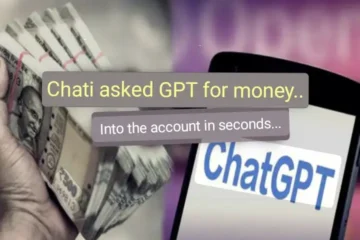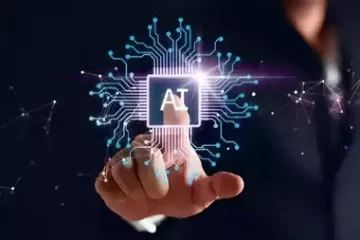These 20 Types Of Jobs Will Disappear with ChatGPT
ChatGPT: The World Is Moving At Rocket Speed In Technology. However, it is Now A Matter Of Concern That It Has Become A Challenge To Humans. There Is Already Concern That Jobs Will Be Lost With ChatGPT, an OpenAI Chatbot That Works On The Basis of Artificial Intelligence. Now The Same Seems To Be The Rule. It Is Being Updated From Time To Time And Is Reaching The Level of Replacing Various Types Of Employees. Experts Estimate That Around 20 Types Of Employees Are At Risk Of Being Lost by ChatGPT’s New Update GPT 4. Opinions Are Revealed That It Is Better For Employees In Those Fields To Find Other Jobs.
ChatGPT: Once Upon A Time You Had To Flip Through Books To Get Any Information. It Took Some Time. After That, After The Internet Became Available, We Are Getting The Required Information In A Very Short Time. Now Comes Artificial Intelligence (AI). Now We Are Talking About It All Over The World. ChatGPT Was Launched In The Market in November 2022 last Year. It Helps People Write Scripts, Stories And Poems. Apart From That, if Asked About Any Information, It Is Explained That It Is A Blessing. New Technology Creates New Jobs. At The Same Time Putting Old Jobs At Risk. According To A 2013 Survey by Oxford University, Artificial Intelligence Will Take 47 Percent Of Jobs In The Next 20 Years. It Is Clear That Human Jobs Are At Risk Due To Artificial Intelligence Based Open AI Like ChatGPTT. Already in Some Countries, Companies Are Replacing Employees With Ai Chatbots. According To Market Research Company Gartner, Unemployment In Countries Like India Will Increase Drastically In The Future. In This Order, Now Let Us Know About Those Jobs That Will Be Replaced by AI Chatbots.
Also Read – How To Earn Money From ChatGPT
Technology Jobs:
Programming and coding are the most In-demand Jobs These Days. However, The Chances Of AI Doing This Work In The Near Future Are Looking Good. According to McKinsey Global Institute Partner Anu Madgaonkar.. Technologies like ChatGPT make This Programming And Coding Easier. Tomorrow AI Chatbots Will Be Able To Write Coding Faster Than Humans. This May Not Require A Large Number Of Software Developers. As A Result, Companies Reduce Recruitments Drastically.
Media Jobs:
ChatGPT Can Write Articles On Any Given Topic. Can Write Script Faster Than Humans. In Such Situations, Jobs Like Advertising, Technical Writing, Journalism, Content Creation Are At Risk. However, Madgaonkar Stated That Scripts Written For Movies May Not Be Written So Well. Jobs Like Reporters And Newscasters In The Media Sector Are At Risk. However, There Is A Strong Feeling That Employees In Those Fields Are Not Threatened By Chatbots Like ChatGPT in The Future.
Jobs in Legal Industry:
AI Will Replace The Legal Assistants Jobs in the Legal Industry. However, if You Want To Be A Lawyer, You Must Have Human Judgment And A Degree. AI Will Not Completely Change The Work in This Sector. But, Research And Preparation of Case Details Can Be Done By AI. On The Other Hand, The Jobs Of English Teachers, Telemarketers, Proofreaders Will Be Endangered By ChatGPT’s New Technology GPT 4.
These are the 20 Types Of Jobs That ChatGPT 4 replaces:
Experts Believe That Jobs In 20 Sectors Are Threatened By ChatGPT 4. These Include Data Entry Clerk, Customer Service Representative, Proofreader, Paralegal, Translator, Bookkeeper, Market Research, Copywriter, Social Media Manager, Analyst, Telemarketer, Appointment Scheduler, Virtual Assistant, New Reporter, Transcriptionist, Email Marketer, Tutor Technical. ChatGPT will fill the posts like Support Analyst, Recruiter, Content Moderator, Travel Agent, etc.
What Are The Tech Giants Doing?
On The One Hand, There Is A Fear Of Losing Jobs With Chatbots like ChatGPT, But The Heads Of Tech Giants Are Reassuring The Employees. It Is Said That Employees Will Not Suffer Due To AI Based Technology. TCS CHRO Milind Lakkad Recently Stated That Ais Will Only Be Colleagues For Employees. On The Other Hand, The Founders of Infosys, NR Narayana Murthy, Also Recently Stated That Missions Cannot Reach The Human Brain And There Is No Harm.





